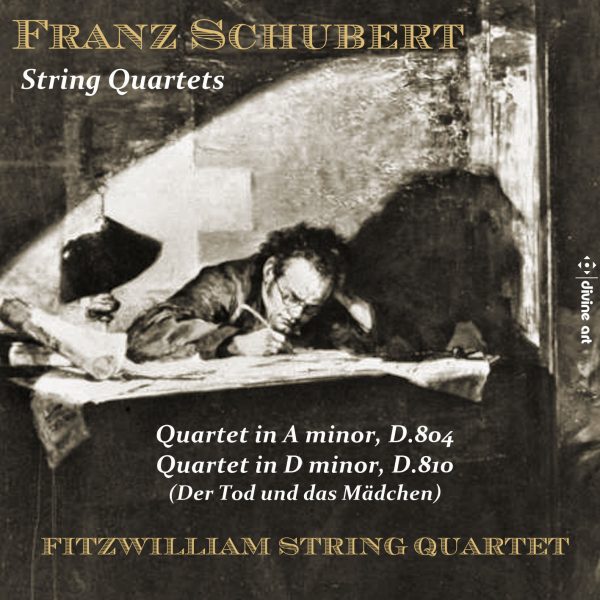New Classics
Franz Schubert died in 1828, aged only thirty-one, but in his short life he wrote some 600 Lieder, nine symphonies, liturgical music, operas, some incidental music and a large body of chamber and solo piano music. He was never able to secure adequate permanent employment, and for most of his career he relied on the support of friends and family. Interest in his work increased dramatically after his death when composers such as Liszt, Schumann and Mendelssohn championed his music and he has become one of the best-loved of all classical music composers.
Two of Schubert’s great mature string quartets, which look forward to the heights of the Romantic period, are superbly performed here by the excellent Fitzwilliam String Quartet on period instruments with gut strings. The superb Quartet in D minor, ‘Death and the Maiden’, is almost universally loved. The work was composed in 1824, after the composer suffered a serious illness and realized that he was dying. It’s named for the poignant theme of the second movement, which Schubert took from a song he wrote in 1817 of the same title, in which Death urges a frightened maiden to trust him. The dramatic A minor quartet, with its melancholy first movement, was completed shortly before and is sometimes referred to as the ‘Rosamunde’ because of its strong thematic links to Schubert’s incidental music to that play.
Both Quartets are given compelling, authentic performances by The Fitzwilliam Quartet, which has just celebrated its 50th anniversary. The ensemble is one of the Britain’s finest quartets, equally at home in the classics, playing period instruments, or in the modern and contemporary repertoire, having had personal links with Shostakovich who called the Fitzwilliams ‘the preferred performers of my quartets’.
@divineartrecordingsgroup
A First Inversion Company
Registered Office:
176-178 Pontefract Road, Cudworth, Barnsley S72 8BE
+44 1226 596703
Fort Worth, TX 76110
+1.682.233.4978












